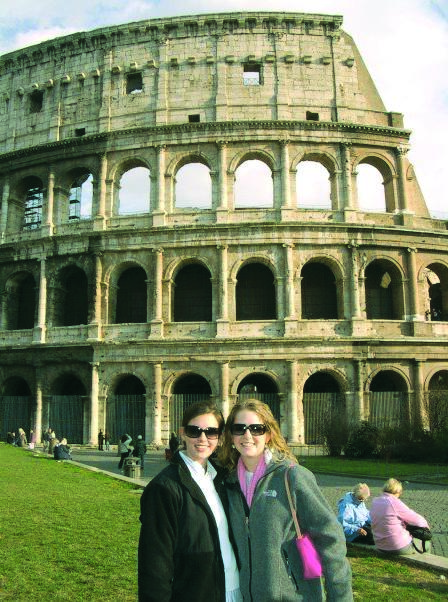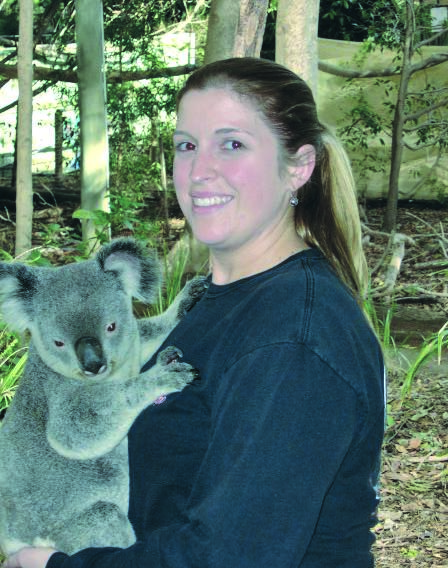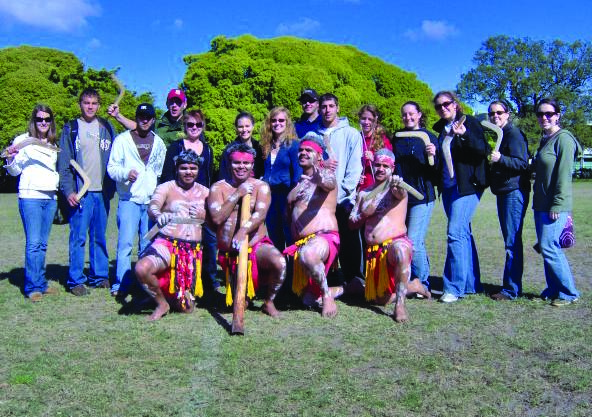- Candidates
- Login
- Set Up Account
- Create a Job Alert
- Search Tools
- Resources
- Employers
In today’s global economy, study abroad experiences are an enormous asset to your resume and scholastic experience. An increasing number of companies are looking for candidates who have the ability to communicate and work with people from various cultural backgrounds. This is especially true in the agribusiness sector, where more and more companies are seeing increases in foreign trade for our nation’s food supply. The distinction of having studied in a foreign country for a session, semester, or year, can be invaluable to your future career in today’s competitive job market.
The Institute for the International Education of Students (IES), surveyed alumni from all IES sponsored study abroad programs from 1950 to 1999. The data derived from more than 3,400 respondents (a 23% response rate) shows that studying abroad is usually a defining moment in a young person’s life and continues to impact their life for years following the experience.
There are numerous avenues for students to get connected with study abroad experiences. Most universities provide offices on campus with faculty who can help facilitate your trip and the planning process. In addition there are classes available for students to receive credit for the experience, which helps the fasttrack students stay on schedule for graduation.
These classes will often require the development of a research paper, either before or during the trip, but these assignments often help students become better prepared for the trip and what they might encounter.
Robby Manning, a senior at North Carolina State University majoring in agricultural business management, studied abroad this past summer in Australia. In a paper she had written about her trip, she stated that cost was the number one barrier her peers face when deciding to pursue a study abroad program.


Study abroad programs often give students the chance to experience once in a lifetime opportunities.
This emphasizes the importance of coordinating the trip through a university study abroad office and planning ahead for the trip. The staff in these offices are able to direct students to information for applying for scholarships offered through the university to help finance the trips.
Even as these avenues are available, many students don’t seek them out or plan ahead enough to complete the applications needed. Another resource student’s often rely on to pay for their trips are loans. Regardless of the cost or how one chooses to finance the trip, students can rest assured that they are making a solid investment in their future!
An additional avenue for study abroad assistance is through company- sponsored trips and internships. Many large agricultural companies have international roots and/or have offices located in countries outside the U.S. These companies are looking for opportunities to capitalize on their international position by marketing the opportunities to a new workforce generation who has more worldly aspirations.
Employers also see these opportunities as avenues to train the future global leaders that will be needed for their business’s success. Many students who have studied abroad have stated that the experience exposed them to specific job opportunities, many of which they would not have been qualified for or known about without the experience.
As we see our population growing larger, more and more companies are looking beyond our borders for resources to grow and produce our food, fiber, and fuel. Adding to the need for graduates who have firsthand knowledge of agricultural practices abroad, as agriculture can be easily observed at various levels in all countries. Agricultural practices are evident by traveling across the landscape you are visiting or by simply having a meal in a new country.
Agricultural students come equipped with an appreciation and understanding of agriculture and are more disposed to understand and research these same practices abroad. This knowledge will go a long way in undergraduate and graduate work, job interviews and other endeavors your future holds.

North Carolina State study abroad student, Robby Manning, was able to get hands on interaction with some of Australia’s finest!
While agricultural production practices may be similar across the world in some respects, most students are still astonished at the differences in farming techniques in other countries. On her trip in Australia, Manning visited production farms for sheep, goats, dairy cattle and swine all of which are major commodities in the U.S. but are often produced on smaller scales in different countries.
She learned that swine processing in Australia differs on many levels from our processing practices in the U.S., due to their different swine export markets, and the cultural beliefs of that country.
The sheep industry is obviously not as strong in the U.S. as is in Australia with Australia producing 50% of the worlds wool supply. This gave Manning the opportunity to witness wool production at a much larger capacity than she would have been able to experience in the U.S.
“Before my trip to Australia, I was aware of the agricultural production of livestock and crops grown in my own state,” Manning said, “but was unaware of the perception of the same crops and livestock in other counties. After my trip I have a much better appreciation for what is produced in my own country, and what other counties are able to add to our food supply.”
Not only does studying abroad enhance your educational advancement, it also enhances your personal and professional growth. The experience of living and traveling independently will provide you with invaluable life lessons. Being in a foreign county is a catalyst for increased maturity and self-confidence, as well as making a lasting impact on your view of the world.
To ensure you make the most of the life lessons study abroad provides and to help set yourself apart from your future competition in the job market, strive to get the most out of your time abroad. When scheduling your trip through a university you often find yourself with extra added amenities that can hinder you from taking full advantage of this experience.
In an organized group you will have the opportunity to make friends who will be on the trip with you; all the arrangements are made for you by the school — including the American-style apartment where you live with your classmates. Most of your classes will be in English, and possibly even taught by American professors.
This makes it all that more important to remain conscience of the activities you are participating in and if you are learning about the country and culture you are surrounded by. Challenge yourself by taking classes taught in the language of the country (assuming your not in an English speaking country) wherever possible, even though it makes for a tough first few weeks. This can lead you to being the top candidate for the job when your potential employer realizes you can conduct an interview in a fluent second language.

Robby Manning and others from her study abroad program meet some of the local Aboriginals.
Live with a family rather than with fellow Americans. You’ll start to understand and respect their culture more, as well as how and why things work. This can be requested through your university or agency that you arrange your trip through, and they can help identify the safest and most approiate environment for you.
Select courses that take advantage of your study abroad location, such as art history in Florence, coffee production in Columbia, or marine science in Australia. Seek opportunities for an internship, volunteer assignment, or work in the place you’re studying abroad. You’ll get a completely different view of the country if you work with the local community. This can lead to another internship or full-time employment with that company back in the states or in this new country you’ve discovered.
Stepping outside your comfort zone can make your experience more than just a bullet point on your resume. It can provide the most captivating examples in your interview. If you take a few calculated risks, plan in advance, and take advantage of all study abroad has to offer, you will become that “memorable candidate” — the one who truly gets the employer’s attention.
Manning states, “the most important lessons I learned overseas were more about myself and how I react when placed in a completely different environment … lessons that will impact my future career and personal decisions.”